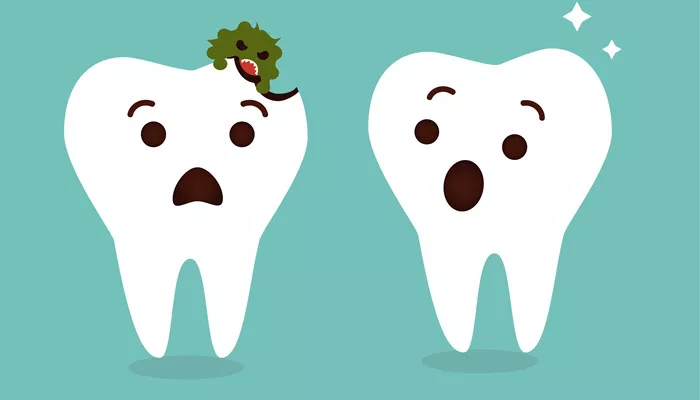Wisdom teeth, also known as third molars, are the last set of teeth to emerge in the human mouth, typically surfacing between the ages of 17 and 25. While they were once essential for our ancestors who had a diet requiring more chewing power, modern dental practices and dietary changes have rendered them largely unnecessary.
Unfortunately, wisdom teeth are also notorious for their propensity to decay quickly. In this article, we will explore the reasons behind this rapid decay, the implications for oral health, and the importance of regular dental care.
The Anatomy of Wisdom Teeth
Wisdom teeth are located at the back of the mouth, with two in the upper jaw and two in the lower jaw. Their position makes them particularly challenging to clean effectively. The difficulty in accessing these teeth during routine oral hygiene practices can lead to an accumulation of food particles and plaque, setting the stage for decay.
Why Do Wisdom Teeth Decay so Fast
1. Poor Accessibility
One of the primary reasons wisdom teeth decay rapidly is their inaccessible location. Being situated at the back of the mouth makes it hard for individuals to reach them with a toothbrush or dental floss.
This inaccessibility can lead to inadequate cleaning, allowing plaque—a sticky film of bacteria—to build up on the tooth surface. As plaque accumulates, it hardens into tartar, which further complicates cleaning efforts and promotes tooth decay.
SEE ALSO: What Can I Eat on The Third Day of Wisdom Teeth
2. Impacted Wisdom Teeth
Another significant factor contributing to wisdom tooth decay is impaction. Many individuals do not have enough space in their jaws for these teeth to emerge properly. When wisdom teeth become impacted, they may remain partially or fully submerged in the gums. This condition creates pockets where food debris and bacteria can become trapped, leading to infections and cavities . Impacted wisdom teeth are often associated with pain and swelling, making it even more challenging to maintain oral hygiene.
3. Bacterial Growth
Tooth decay is fundamentally caused by bacteria that thrive on sugars consumed through food. When these bacteria metabolize sugars, they produce acids that erode tooth enamel—the protective outer layer of teeth . Because wisdom teeth are often surrounded by gum tissue that can trap food particles and bacteria, they are particularly vulnerable to this process.
The combination of poor cleaning access and bacterial growth creates an environment ripe for decay.
4. Eruption Issues
Wisdom teeth can also erupt at awkward angles or not fully emerge from the gums. This irregular eruption can create additional spaces for bacteria to thrive and complicate cleaning efforts . When a wisdom tooth only partially erupts, it leaves a gap between the tooth and gum where food particles can accumulate, further increasing the risk of cavities.
Consequences of Wisdom Tooth Decay
The ramifications of untreated wisdom tooth decay can be severe and multifaceted:
1. Pain and Discomfort
As decay progresses, individuals may experience significant pain and discomfort around the affected tooth. This pain can radiate to other areas of the mouth or even into the jaw . In some cases, this discomfort may lead to difficulty eating or speaking.
2. Infection Risks
Untreated cavities can lead to infections that may spread beyond the tooth itself. For instance, an abscess—a pocket of pus caused by bacterial infection—can form around the tooth root or in surrounding tissues . This condition often requires immediate medical attention due to its potential complications.
3. Damage to Adjacent Teeth
Wisdom tooth decay does not only affect the wisdom tooth itself; it can also harm adjacent teeth. As bacteria proliferate around an impacted wisdom tooth, they can cause decay in neighboring molars.
This cascading effect can result in more extensive dental work being required.
4. Increased Dental Procedures
Due to their susceptibility to decay and associated complications, many dentists recommend extracting wisdom teeth preemptively—often before they even cause problems . This approach aims to prevent future issues but also means additional dental procedures for patients.
Preventive Measures
Given the high risk associated with wisdom teeth decay, preventive measures are crucial:
1. Regular Dental Check-ups
Routine visits to a dentist are essential for monitoring oral health and catching potential issues early on. Dentists can assess wisdom teeth positioning and recommend timely interventions if necessary.
2. Improved Oral Hygiene Practices
While it may be challenging to clean wisdom teeth effectively due to their location, diligent oral hygiene practices can help mitigate risks:
Use a soft-bristled toothbrush designed for reaching back teeth.
Consider using interdental brushes or flossing devices specifically designed for hard-to-reach areas.
Rinse with an antibacterial mouthwash regularly.
3. Dietary Considerations
Reducing sugar intake can significantly lower the risk of cavity formation on all teeth, including wisdom teeth . A balanced diet rich in fruits, vegetables, and whole grains supports overall oral health.
Conclusion
Wisdom teeth are often viewed as a nuisance due to their high susceptibility to decay and associated complications. Their location at the back of the mouth makes them difficult to clean effectively, while issues like impaction and improper eruption further increase their risk factors for cavities. Regular dental check-ups coupled with diligent oral hygiene practices are essential strategies for managing these challenges effectively.
Related topics:

